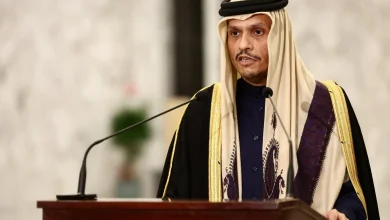
Breaking Down UAE & Saudi Arabia’s Cryptocurrency Laws: A Practical Guide
The UAE stands as a global crypto powerhouse today. Its digital asset market reached $44.29 billion in 2024, with 30.4% of its population owning cryptocurrencies. The country ranks third globally in the 2024 Henley Crypto Adoption Index. Saudi Arabia has shown remarkable growth and became the world’s fastest-growing crypto market. The kingdom processed $31 billion worth of transactions from July 2022 to June 2023.
These two Gulf nations take different paths when it comes to crypto’s legal status. The UAE created a complete regulatory framework through its Virtual Asset Regulatory Authority (VARA). The country removed cryptocurrency transfer taxes and put strict AML requirements in place. Saudi Arabia takes a more careful approach. Despite 77% of its population knowing about digital assets, cryptocurrencies still exist in a legal gray area there.
The UAE’s crypto trading follows clear legal guidelines. The market should grow to $64.41 billion by 2029. The country pulled in over $30 billion in cryptocurrency investments between July 2023 and June 2024. This pushed the UAE into the top 40 countries worldwide. This piece looks at both nations’ regulatory approaches, how they enforce rules, and what it means for crypto businesses and investors in 2025.
Current Legal Status of Cryptocurrency in UAE
“The crypto market in the UAE will progress rapidly in 2024. Companies based in Dubai have started accepting cryptocurrencies for important services and deals.” — KYC Hub, Regulatory compliance solutions provider
The UAE has made cryptocurrency a key part of its legal system and leads the way in digital asset regulation. The country uses a layered approach that supports new ideas while protecting investors.
Is Cryptocurrency Legal in UAE: Official Recognition
The UAE has made bold moves to bring cryptocurrencies into its financial system. The government passed Federal Law No. 54 of 2023 in October 2023. This law changed the Central Bank Law to add “National Digital Currency” as an official currency type. This makes the UAE one of the first nations to formally accept a Central Bank Digital Currency.
Article 157.2 of the new law states that virtual assets regulated in different jurisdictions aren’t currencies. The Central Bank’s Board of Directors decides how people can use virtual assets as payment tools.
The Securities and Commodities Authority (SCA) now leads the cryptocurrency sector’s regulation. Cabinet Decision No. 111 of 2022 gave SCA the power to watch over and control virtual assets throughout the UAE and its free zones. Virtual Asset Service Providers (VASPs) need SCA licenses to prove they meet strict standards.
VARA’s Role in UAE Crypto Regulation
Dubai created the Virtual Assets Regulatory Authority (VARA) in March 2022 through Law No. 4 of 2022. VARA stands as the world’s first independent virtual asset regulator. It oversees virtual asset activities in Dubai, Special Development Zones and Free Zones, but not the Dubai International Financial Center.
VARA aims to:
- Make Dubai a global hub for virtual assets
- Create rules that protect investors and stop illegal activities
- Support new ideas and bring in investments
- Set standards for virtual asset platforms and service providers
VARA released complete Virtual Assets and Related Activities Regulations in 2023. These rules cover seven licensed activities: advisory services, broker-dealer services, custody services, exchange services, lending and borrowing services, payments and remittances services, and management and investment services. New and existing organizations must get VARA’s approval before starting any virtual asset work.
SCA and VARA signed an agreement in September 2024 that created one regulatory framework for UAE’s virtual assets. VASPs in Dubai need a VARA license and can register with SCA to work across the UAE. VASPs in other emirates must get an SCA license.
UAE Free Zones and Crypto-Friendly Jurisdictions
The UAE welcomes cryptocurrency businesses in its 40+ free zones. Foreign investors can fully own companies in these areas. Some free zones are perfect for crypto operations:
Abu Dhabi Global Market (ADGM) gives licenses for crypto asset businesses. Its independent jurisdiction helps crypto asset companies grow safely. ADGM handles crypto exchange licensing, custody, management, and marketing of crypto assets.
Dubai Multi Commodities Center (DMCC) offers licenses for distributed ledger technology services, crypto commodities trading, NFT marketplaces, and metaverse services.
Other crypto-friendly zones include Dubai World Trade Center (DWTC) that issues licenses under SCA’s watch, Dubai Airport Free Zone Authority (DAFZA) that helps with crypto-commodities trading, and RAK Digital Assets Oasis, UAE’s first free zone just for crypto businesses.
Clear rules, special authorities, and helpful free zones make the UAE attractive to cryptocurrency companies looking for both regulation and room to grow.
Saudi Arabia’s Cryptocurrency Regulatory Framework
Saudi Arabia takes a much more cautious approach to cryptocurrency regulation than the UAE’s progressive stance. Digital assets exist in a regulatory gray area while the Kingdom reviews their economic and social impact.
Saudi Central Bank’s Position on Digital Assets
The Saudi Central Bank (SAMA) remains risk-averse about cryptocurrencies and doesn’t recognize them as legal tender. No cryptocurrency exchanges or services can operate within the Kingdom. SAMA has warned multiple times about digital currency risks and their lack of government oversight.
The Ministry of Finance warned against crypto investments in 2019. They pointed out that “such crypto currencies have been associated with fraudulent activities and attract suspicion of use in illegal and illegitimate financial activities in addition to their high-investment risks related to frequent price fluctuations”. SAMA-regulated banking institutions can’t deal with virtual currencies without explicit approval.
SAMA shows interest in blockchain technology despite its cautious stance. The Project Aber joint initiative with UAE’s Central Bank learned about dual-issued digital currency potential for domestic and cross-border settlement between both countries.
Legal Classification of Virtual Currencies in Saudi Law
Saudi Arabia has no specific legislation for virtual currencies. Cryptocurrencies aren’t commodities and don’t qualify as money under Saudi law. The Saudi Arabian Monetary Law defines the Saudi riyal as the official currency. Article 3 gives the Saudi Central Bank exclusive rights to issue and mint currency.
The current legal framework places cryptocurrencies in an ambiguous position:
- Not recognized as official currencies or legal tender
- Classified as digital assets primarily for investment purposes
- Not explicitly prohibited for individual ownership
- Not traded by local financial institutions
- Banks prohibited from processing crypto transactions
The Anti-Money Laundering Law and Law on Combating Terrorist Crimes and its Financing don’t mention crypto assets directly. The broad definition of “funds” in both laws might include such assets since they cover tangible and intangible assets acquired through “electronic or digital systems”.
Recent Regulatory Developments (2023-2025)
Saudi Arabia’s approach to cryptocurrency regulation showed subtle changes between 2023 and 2025. The Kingdom moved beyond just warnings and started exploring potential regulatory frameworks.
SAMA appointed a Virtual Assets and Central Bank Digital Currency Program Lead in 2022, showing increased focus on digital assets. They also started discussions with major players like Binance and other national regulators, including the Ministry of Communications and Information Technology, about potential digital currency regulations.
Saudi Arabia shapes its future regulatory approach through several key initiatives:
- Continued development of central bank digital currency (CBDC) projects
- Exploration of blockchain applications beyond cryptocurrencies
- Ongoing evaluation of appropriate regulatory models
Experts believe Saudi Arabia will create a complete regulatory environment for cryptocurrencies by 2025. Gulf Cooperation Council countries face growing pressure to develop aligned crypto policies and regulations, especially after recent political developments that might influence digital currency adoption globally.
Comparative Analysis of AML and KYC Requirements
Both Gulf nations have their own ways to handle Anti-Money Laundering (AML) and Know Your Customer (KYC) rules. These rules match their crypto strategies and meet global compliance standards.
UAE’s Risk-Based Approach to Crypto Compliance
UAE uses a detailed risk-based approach (RBA) to AML/CFT laws. Financial institutions must spot, evaluate, and grasp money laundering and terrorism financing risks before they take steps to reduce them. Virtual Asset Service Providers (VASPs) can adjust their compliance programs based on their business type, size, and complexity.
UAE’s rules require VASPs to have resilient AML and KYC processes. These include checking customer identity, watching transactions, and reporting suspicious activity. The Virtual Asset Regulatory Authority (VARA) requires licensed crypto exchanges to have a Money Laundering Reporting Officer (MLRO). They must also check their AML Business Risks regularly. High-risk customers need extra checks, while low-risk ones might need fewer.
The Securities and Commodities Authority (SCA) made these rules stronger in 2018. Federal Law No. 20 and Cabinet Resolution No. 10 now require all VASPs to use a Risk-Based Approach that balances new ideas with strict rules.
Saudi Arabia’s Stricter Monitoring Systems
Saudi Arabia takes a tougher stance on AML and CFT measures for digital currency transactions. Companies must do full background checks and report anything suspicious. This helps keep their financial system secure. The Saudi Arabian Monetary Authority (SAMA) created detailed AML and KYC rules. These rules make businesses set up policies and controls to stay compliant.
Saudi regulators focus on protecting consumers and keeping markets fair. They want to guard people against fraud and risky crypto investments. The government now teaches investors about crypto risks like price swings, security issues, and possible losses from hacking.
Cross-Border Transaction Regulations
These countries worked together on new ways to handle cross-border payments through Project Aber. This project looked at using a dual-issued digital currency for bank settlements between both countries. It showed that distributed ledger technology could transform cross-border payments, making them instant, cheaper, and more available.
UAE strictly follows the Financial Action Task Force (FATF) Travel Rule. VASPs must share sender and receiver details for transactions over AED 3,500. They must also record who sends and receives large cross-border transactions. These rules match global standards to stop illegal activities.
Saudi Arabia remains cautious about cryptocurrencies. However, both nations know how important AML and KYC rules are in the virtual asset world. They work hard to put these measures in place and enforce them to prevent illegal activities.
Taxation and Financial Reporting Differences
Tax frameworks for cryptocurrency show clear differences between the UAE and Saudi Arabia. Each country’s approach reflects its economic policies and vision for digital assets.
UAE’s Tax-Free Crypto Transactions
The UAE made a game-changing move by making cryptocurrency transactions exempt from its 5% Value Added Tax (VAT). This change took effect November 15, 2024, and applies back to January 1, 2018. The exemption covers all transfers, conversions, and exchanges of digital currencies. This helps reduce costs for crypto businesses and makes compliance easier. Individual investors get a big advantage from UAE’s tax setup since there’s no capital gains tax or personal income tax on crypto profits. Wealthy investors can keep all their profits – this is a big deal as it means that traders in other places might pay up to 37% on short-term gains. This forward-thinking tax policy shows UAE’s commitment to become a global blockchain hub and attract international crypto investors and entrepreneurs.
Saudi Arabia’s Zakat Implications for Crypto Assets
Saudi Arabia takes a different path by applying its traditional Zakat system to cryptocurrency holdings. Saudi companies that GCC nationals fully own pay Zakat at 2.5% on their adjusted net profits or Zakat base. Non-GCC shareholders face a much higher 20% corporate income tax. Religious scholars say crypto owners must pay Zakat just like they would on other acceptable wealth in Islam. The Zakat Collection Rules for Investment Funds, which started January 1, 2023, let unit holders subtract their investment value from the Zakat base under certain conditions.
Corporate Tax Treatment for Crypto Businesses
Corporate taxation creates another key difference between these nations. The UAE started charging 9% corporate tax on profits over AED 375,000 for mainland crypto businesses in June 2023. This rate remains nowhere near what other countries charge – the United States charges 21%. UAE Free Zone businesses might not have to pay any corporate tax, which makes them even more attractive to crypto companies. These tax differences mean businesses and investors need to plan carefully when choosing where to set up their crypto operations in the Gulf region.
Enforcement Mechanisms and Penalties
“The marketing of any AECs, as well as any VA Activities involving these cryptocurrencies, is entirely prohibited in the UAE.” — Merkle Science, Blockchain analytics and compliance solutions provider
Cryptocurrency governance in Gulf nations relies heavily on regulatory enforcement. UAE and Saudi Arabia have taken different approaches that align with their digital asset strategies.
UAE Regulatory Sanctions for Non-Compliance
Multiple regulatory bodies in UAE enforce cryptocurrency regulations effectively. The Virtual Assets Regulatory Authority (VARA) monitors compliance and took action against seven entities that operated without licenses in Dubai. These entities received fines up to AED 100,000 and cease and desist notices for unlicensed operations and marketing violations.
Federal Decree-Law No. 34 of 2021 on Cybercrime strictly prohibits the promotion of unlicensed cryptocurrency investments and misleading information about digital assets. Violators can face imprisonment and fines between AED 20,000 and AED 500,000. Marketing regulation breaches can lead to penalties up to AED 10 million, which may double for repeated violations within a year.
The Securities and Commodities Authority (SCA) Decision No. (23/R.M) of 2020 requires mandatory licensing for cryptocurrency businesses. Cabinet Resolution No. (111) further strengthens this requirement.
Saudi Arabia’s Enforcement Framework
Saudi Arabia takes a different enforcement path and relies on existing financial regulations instead of cryptocurrency-specific laws. While cryptocurrencies lack formal recognition, the Ministry of Finance warns against using Saudi Arabia’s name, currency, or emblem for virtual currency marketing – violations will trigger legal actions.
The kingdom’s Anti-Money Laundering Law and Counter-Terrorism Financing regulations apply to digital assets through their broad definition of “funds” that includes assets obtained through “electronic or digital systems”. Businesses that deal with cryptocurrencies must follow strict due diligence procedures and report any suspicious activities.
Case Studies of Regulatory Actions (2023-2025)
VARA issued enforcement notices against unlicensed virtual asset service providers in early 2024, which showed its regulatory authority. These actions came after stronger marketing regulations were announced in late 2023. Local authorities continue their investigations that target unauthorized cryptocurrency promotions and misleading advertisements.
Saudi Arabia’s enforcement efforts focus on preventing unauthorized cryptocurrency use within financial institutions since they remain unrecognized by legal entities. SAMA supervises a regulatory sandbox that allows controlled testing of digital currency state-of-the-art solutions while ensuring compliance with existing financial regulations.
UAE and Saudi Arabia show dramatic differences in their cryptocurrency regulations through 2025. UAE has positioned itself as a crypto-friendly region with complete frameworks through VARA and SCA. Saudi Arabia takes a more conservative path but shows signs it may accept crypto gradually.
These differences show up in many important areas. UAE gives crypto clear legal status, doesn’t tax crypto transactions, and creates special zones for digital asset companies. But Saudi Arabia keeps crypto in a legal gray area. It applies traditional Zakat systems and maintains tight control through SAMA.
Their enforcement methods also tell different stories. UAE has specific fines when companies don’t follow crypto rules. Saudi Arabia uses its existing financial systems instead. All the same, both countries demand strong AML and KYC requirements, though they go about it differently.
UAE aims to become a global crypto hub with forward-thinking policies and clear rules. This approach differs sharply from Saudi Arabia’s careful evaluation of digital assets. These contrasting strategies will shape how the Gulf region adopts cryptocurrency. The impact could ripple through global crypto markets.




